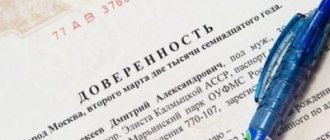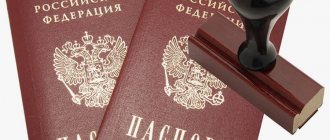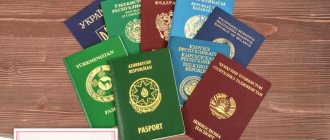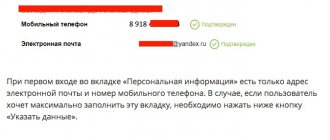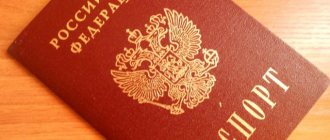Is it possible
Ab. 2 tbsp. 3 of the Law and para. 2, paragraph 4 of the Resolutions say the same thing - individuals are required to register at their place of residence or stay within the Russian Federation. Otherwise, by virtue of Art. 10 of the Law, a person may be held accountable.
Despite the indication of such an obligation, ab. 2 tbsp. 3 of the Law states that the presence or absence of registration (either permanent or temporary) does not serve as a reason for restricting the exercise of the rights of citizens provided for by the Constitution of the Russian Federation and other federal and regional regulations.
According to paragraph 9 of the Resolution, temporary registration must be done if you plan to live in residential premises that are not a permanent place of residence (for example, in a hospital, hotel, sanatorium) for a period of more than 90 days.
Dear readers! The article talks about typical ways to resolve legal issues, but each case is individual. If you want to find out how to solve your particular problem , contact a consultant:
8 (800) 700 95 53
APPLICATIONS AND CALLS ARE ACCEPTED 24/7 and 7 days a week.
It's fast and FREE !
In accordance with paragraph 16 of the Resolution, permanent registration must be done no later than 7 days after actual arrival at a new place of permanent residence.
What conclusions follow from the above:
- Permanent registration may not be required if the citizen has not arrived at a new place of residence, that is, in fact, is a person without an established place of residence;
- temporary can be omitted if the period of stay somewhere is no more than 90 days;
- temporary and permanent registration are mutually independent - that is, it can be temporary, but not permanent, and vice versa;
- according to ab. 1 tbsp. 5 of the Law, temporary registration is not grounds for termination of permanent registration.
Validity
Ab. 1 paragraph 30 of the Resolution states that citizens are considered deregistered at the place of residence when the period specified by the applicants themselves in the application expires (in the general case, for example, when temporarily registering in another city with relatives or friends).
If non-permanent registration was needed to stay in a hotel, sanatorium, medical institution and other similar ones, then, according to Ab. 2, paragraph 30 of the Resolution, temporary registration is considered terminated upon the citizen’s departure from such an institution.
As we can see, the minimum and maximum periods of validity of a non-permanent registration are not defined by the Law and the Resolution.
Registration procedure and cost
Temporary registration without permanent registration is possible only with the consent of the property owner. You can register in another city by contacting the Federal Migration Service. When submitting documents, not only the citizen registering must be present, but also the owner of the apartment. We remind you that non-permanent registration in another city does not serve as a basis for registration at the main place of residence.
What documents are needed? Here is the main list:
- written application of the established form (form No. 1). Filled out and signed by the citizen submitting documents for temporary registration. Please note that the property owner also signs the document;
- passport. In this situation, it is impossible to register using a foreign passport or other identity card;
- documents serving as the basis for residence. In our case, this is a lease agreement concluded between the owner and the tenant. Please note that if the property is in shared ownership, you will need to obtain written consent from all co-owners;
- extract from the house register. Usually required if a citizen wants to obtain temporary registration in a country house.
Please note that registration can be obtained not only by personally contacting the Federal Migration Service. The law allows documents to be sent by registered mail or through State Services.
If you decide to use postal services, documents must be certified by a notary, especially the owner’s consent to provide you with temporary registration. After receiving such a letter, FMS employees send the applicant a notification with the date when he can appear for registration.
Temporary registration through State Services looks almost identical. After registering on the website, the citizen goes to the Federal Migration Service section and fills out an application form.
More on the topic Buying a land plot from lease to ownership - procedure
This method differs from the previous ones in that registration through State Services does not require the consent of the home owner. In addition, temporary registration in another city through State Services allows you to save time and nerves. After submitting the necessary documents, you can register using any of the above methods within three days.
How much does temporary registration cost? For Russian citizens this procedure is free. Therefore, passport office employees have no right to collect fees or demand payment for their services.
For citizens of other states, the cost of temporary registration is 215 rubles. In large cities there are legal centers that, along with the Federal Migration Service, register citizens, but do this on a paid basis. Interestingly, there is no end to clients in such intermediary organizations. The cost of registration here varies from 500 to 5,000 rubles, depending on the length of stay.
But by contacting an intermediary, citizens are at great risk. Here are some reasons:
- fake forms with fake stamps are issued, which are not registered with the Federal Migration Service. If a citizen is caught with such a fake by police officers, in addition to a fine for being without registration, he faces charges of forgery of documents;
- Intermediaries usually do not require a person’s actual residence at the place of registration, so several residents can be registered at one address. Such addresses are calculated by police officers, and the registration documents are canceled.
Therefore, we recommend registering legally.
If a citizen has left his previous living space for some reason, he must attach a departure slip to the package of documents.
In the complete absence of registration as such, actions must begin with the payment of the fine provided for by the Code of Administrative Offenses, clause 19.15.1. The payment amount is from 2 to 5 thousand rubles.
The procedure for paying the fine and details can be obtained from the FMS office that serves the territory of the residential premises.
A receipt for payment of the fine is attached to the following package of documents:
- application for registration;
- documents for living space that provide grounds for registration (lease agreement, social rent, etc.);
- statement of consent of the owner. If there are several owners of the apartment, everyone must give consent;
- passports of the applicant and the owners of the apartment.
If there is a notarized lease agreement, the presence of the owner at the procedure and the provision of his passport is not required.
Temporary registration in this case is issued for the duration of the lease agreement, but not more than 5 years. After this period, the document can be extended if necessary.
Read about the specifics of temporary registration of minor children on our website.
How to extend it
The need for “extension” exists only in cases where the Law or Resolution provides for the submission of documents for temporary registration directly by the applicant himself.
In the case where non-permanent registration is needed to stay in a sanatorium, hospital, campsite, etc., by virtue of Ab. 2 clause 30 of the Resolution, deregistration is carried out upon actual disposal, accordingly, an extension is not required.
In other cases, the temporary registration needs to be “extended”. The renewal procedure, in general, boils down to submitting an application with new deadlines and documents specified in paragraph 9 of the Resolution, since the concept of “registration renewal” is not provided for by law.
How to make temporary registration without permanent registration
If you don’t have a permanent registration, it’s okay - this is not an obstacle to obtaining a temporary one. The main thing is to comply with the standard period of 90 days if you plan to live with relatives or friends for a long time.
Please note that ab. 2 tbsp. 5 of the Law indicates that it is not necessary to register at the place of residence if there is a permanent residence permit, if the place of stay is in the same locality as the place of residence.
However, since in the case we are considering there is no permanent registration, temporary registration will be required in any cases where the period of residence exceeds 90 days.
We also note that upon arrival at a boarding house, medical institution, rest home, correctional colony, etc., by virtue of clause 14 of the Resolution, the applicant does not need to perform any actions - the administration of the relevant institution is authorized to issue a temporary registration. The only document the administration will need is the arrival's passport.
So, here is the general algorithm of the procedure, if it is carried out not by the administration of any institution, but by the applicant himself:
Stage No. 1. Determine whether it is necessary to register at all (maybe there is a permanent registration in the same city where you plan to do a temporary one) and what the period of residence will be (if less than 90 days, no action should be taken).
Stage No. 2. If the period of residence is more than 3 months, and there is no permanent registration, it is necessary before the expiration of these 3 months. contact the persons responsible for receiving and transferring applications and documents to the Main Migration Department of the Ministry of Internal Affairs (formerly FMS) (hereinafter referred to as the Responsible Persons) (clause 9 of the Resolution), or, in accordance with paragraph. 8 clause 9 of the Resolution, carry out the procedure through State Services.
To registered persons or through the State]application[/anchor] in accordance with the form established by Order of the Federal Migration Service dated September 11, 2012 No. 288 “On approval...” (hereinafter referred to as Order No. 288) and other documents (list below).
Stage No. 4. Wait until the Responsible Persons hand over the documents and the GUVM completes their verification.
According to paragraph 11 of the Resolution, the Responsible Persons are obliged to transfer the documents accepted from the applicant to the Main Directorate for Migration within 3 days.
The same period - 3 days - according to clause 12 of the Resolution - is given by the Main Directorate for Migration and Migration to complete the procedure and issue a certificate of registration at the place of residence.
Stage No. 5. If desired, indicate in the application the method of obtaining the certificate - in person or by mail to the temporary registration address.
Is permanent registration necessary if there is temporary registration and why?
Every resident of Russia is required to have temporary or permanent registration. However, you can only have one type of registration.
But at the same time, the law states that after deregistration at the place of permanent registration, it is necessary to register within seven days. Can there be temporary registration without permanent registration?
If there is no permanent registration, you must present the departure sheet issued to the citizen upon deregistration.
If for some reason there was no registration at all or the application occurred after the established period, then the citizen will have to pay a fine under Article 18.8 of the Code of Administrative Offenses of the Russian Federation.
| The employer and all persons registered with him | When registering in public housing. In this case, it is required to notify the landlord about the new tenant, and the duration of registration cannot exceed six months. It is important that the landlord has the right to prohibit the registration of another tenant if this reduces the housing standards per person |
| Legal entities | Owning housing |
| Owners | Private housing |
| Housing cooperative board | When a member of a cooperative does not own an apartment |
Consent to temporary registration can be expressed by a personal appeal from the person responsible for making the decision.
If it is not possible to apply in person, you can formalize the consent in writing, having it certified by a notary.
Registration of temporary registration gives a person the right to unhindered use of living space and permanent residence during the entire registration period.
To be discharged, you will need to go to court. Moreover, the court may take into account the difficult circumstances of the resident and delay discharge for some time.
Conditions for discharge during temporary registration should be agreed upon in advance. Experts advise not to apply for registration for the maximum possible period.
If necessary, you can always extend your registration. The maximum duration of temporary registration should not exceed five consecutive years. The registration period is determined upon registration.
After the specified period, registration is canceled automatically. But a citizen who leaves their living space ahead of schedule is required to contact the FMS to be removed from temporary registration.
| Application form No. 1 | In which the owner personally makes an entry requesting temporary registration of a tenant in his living space |
| Separate notarized statement from the owner | For temporary registration if he cannot appear in person |
| Documents confirming ownership rights | For housing |
| Document confirming the identity of the applicant | — |
| Migration card | If the person being registered is a citizen of another country |
If there is a lack of registration, a receipt for payment of the fine must be attached to the package of documents.
When children under 14 years of age live in an apartment, the consent of the guardianship authorities will be required for registration of an unauthorized person.
Registration procedure
There are several ways to register temporarily:
- by contacting the registration authorities in person;
- by submitting an application through the State Services portal;
- sending documents by mail.
When applying in person, the necessary documents are submitted and are reviewed to determine the legality of the application.
After checking the legality of the application, the applicant is issued a certificate of registration at the place of temporary registration.
There is no temporary registration stamp in the passport. In some cases, the period for reviewing documents may be extended if the required documents are not submitted.
More on the topic Until what age can you enroll in a university?
When submitting documents through the State Services portal, registration and authorization on the site will be required. An application for temporary registration is submitted in your personal account.
You must fill out the application form and attach:
- a copy of the document indicating the basis of residence in the premises;
- arrival address sheet;
- arrival statistics sheet (if the registration period is nine months or more).
It is important that the attached document must be certified by a notary or an official of the registration authority.
When visiting the FMS in person to obtain a certificate, you will need to provide the original document. In addition, the recipient will need to confirm his identity.
The registration process via mail is almost the same as the standard procedure. The only difference is that the documents are sent by mail.
After checking the documents, the applicant is sent a notification according to which he needs to personally visit the FMS and submit documents to confirm his identity and eligibility of the application.
What time do they do it?
The time period for obtaining temporary registration depends on the chosen method. If you apply in person, documents are reviewed within three days.
The applicant can then obtain a certificate of registration. If the necessary documents are missing or additional information is required, the review period may increase to eight days.
Law of the Russian Federation of June 25, 1993 No. 5242-1 “On the right of citizens of the Russian Federation to freedom of movement, choice of place of stay and residence within the Russian Federation” establishes two types of registration. At the same time, it does not say about the direct dependence of one type of registration on another. It all comes down to a person's intentions and the length of his stay in a certain place.
If you plan to stay temporarily due to personal circumstances, for example, treatment, admission to an educational institution, employment, then you can live without registration for ninety days from the date of arrival. After this, you need to go through the registration procedure.
If you have temporary registration, permanent registration will not be required. But if a person has purchased a new apartment in which he intends to live for an indefinite period, he will need to contact the Ministry of Internal Affairs within seven days from the date of arrival to register at his place of residence.
The type of registration does not play a role in a person’s social status. That is, regardless of whether he is registered temporarily or permanently, he is granted almost all the rights provided for by law. He can enroll in an educational institution, get a job, receive free medical care, and enjoy social benefits and guarantees that are due to him.
Temporary registration is mainly carried out by persons who are not the owners of the apartment. Although the owner has the right to register in his housing at his place of residence. It should be remembered that in case of violation of the requirements of the current legislation, a person who is temporarily registered bears responsibility on an equal basis with those who have permanent registration. Liability for violations related to compliance with the rules of temporary registration is described in detail separately.
For a minor child
According to paragraph 10 of the Resolution, non-permanent registration requires consent from:
- the tenant and all members of his family (if moving into a non-privatized apartment is planned);
- the owner (owners) of the property (if moving into a privatized apartment);
- of the board of the housing cooperative, if the member of the housing cooperative is not the owner of the premises where it is planned to move in.
Ab. 3 paragraph 12 of the Resolution states that consent from these persons is not required if a child needs temporary registration at the place of residence of his parents or legal representatives.
Otherwise, temporary registration of minors is carried out in the same manner as for adults. A birth certificate is recognized as an identification document for a minor under 14 years of age.
What are the consequences of temporary registration for the owner of an apartment?
When tenants ask for temporary registration in the area of rented housing, the owner most often refuses due to fear of future claims to the property. The owner is afraid that later he will not be able to evict the tenants; they will demand part of the property.
But such fears are unfounded. Risks arise only when assigned tenants register minor children in a rented apartment. And in this case, the owner will not lose the property, will not share it with the tenants, and the process of deregistering the child may only be delayed.
For foreign citizens
The Law and the Resolution regulate the procedure for non-permanent registration for citizens of the Russian Federation.
For foreigners, registration rules are given in:
- 109-FZ of July 18, 2006 “On migration…” (hereinafter referred to as Federal Law No. 109);
- Resolution No. 9 of January 15, 2007 “On the Procedure...” (hereinafter referred to as the Procedure).
So, part 1 of Art. 20 Federal Law No. 109 states that a foreigner (both permanently and temporarily staying in the Russian Federation, that is, on the basis of a temporary residence permit or residence permit) is required to register within 7 days from the date of actual arrival at the place of stay.
An exception is that a foreigner does not have a place of residence, is in a hotel, boarding house, rest home, works on a rotational basis, or is in an institution executing an administrative penalty.
According to the general rule established by Part 3 of Art. 20 Federal Law No. 109, notification of a foreigner’s arrival at the place of stay must be sent to the migration control authority by the receiving party. And only in the cases specified in Part 3, Part 3.1. and part 4 art. 22 Federal Law No. 109, the foreigner himself is obliged to do this.
Some foreigners are not subject to temporary registration. The list of such persons is indicated in Part 6 of Art. 20 Federal Law No. 109.
The receiving party or a foreigner can submit a notification either directly to the Main Department of Migration of the Ministry of Internal Affairs or to the MFC (clause 22 of the Procedure).
Fine for violations
Art. 19.15.1. The Code of Administrative Offenses regulates sanctions for the lack of non-permanent registration if 90 days have passed since the actual arrival at the place of residence, and the Main Directorate for Migration Affairs of the Ministry of Internal Affairs was not notified accordingly about this.
The amount of penalties varies depending on the subject of the Russian Federation:
| The subject of the Russian Federation | Fine for citizens | Fine for tenants or apartment owners who allow any person to live without registration | Fine for legal entities |
| Moscow or St. Petersburg | From 3000 to 5000 rub. | From 5000 to 7000 rub. | From 300,000 to 800,000 rubles. |
| Other regions | From 2000 to 3000 rub. | From 2000 to 5000 rubles. | From 250,000 to 750,000 rubles. |
Please note that liability for tenants and owners occurs only if they do not send, after 3 working days after the expiration of 90 days of any person’s stay in their premises, a corresponding notification to the Main Department of Migration of the Ministry of Internal Affairs.
So, temporary and permanent registration are mutually independent concepts. You can make it temporary if there is no permanent one, and vice versa.
It is important not to miss the 90-day period after actual arrival at the place of stay - otherwise sanctions will follow under Art. 19.15.1. Code of Administrative Offences.
Registration procedure and cost
FMS employees check the submitted documents within 3 working days. After this, a Temporary Registration Certificate is issued.
More on the topic Why and how to conduct a website audit: dispelling myths
This period is established by the Rules of Procedure of 1995. If documents are submitted remotely (via mail or the State Services portal), the processing time may increase to 10 days.
FMS employees may require additional certificates from the applicant from the last place of residence.
The procedure for citizens of the Russian Federation is absolutely free and does not require payment of state duty.
You can learn about the consequences of temporary registration for the owner of the premises in our article.
